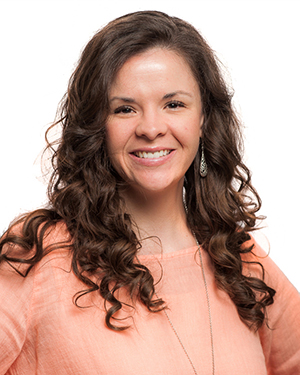
By Sarah McKenney
Spiritual Support and Volunteer Coordinator
Thanksgiving, Christmas, Chanukah, Ramadan, Kwanza, Yule Lore (Winter Solstice), and New Year's Day are just some of the holidays this time of year that can be very difficult time for anyone who has had a loved one die, whether it’s been six months or many years. This includes other forms of loss like friends or family moving away, staff changes, changing schools, divorce in the family, etc.
Whether you need to practice self-care or you are a caregiver, and your client or family member has experienced a loss, you can help the individual follow these tips, too. Below are just some tips to help guide you and others in self-care. There is no right or wrong way to grieve, each person is different.
Some Tips for Coping with Grief at the Holidays
(derived from Vitas Health Care)
Set realistic expectations for yourself. Remind yourself (or others) that this year is different. Support your client or family member in deciding what he/she can still handle the responsibilities you’ve had in the past. Examine the tasks and events of celebrating and ask your client or family member if he/she wants to continue them. Take others up on offers to cook, shop, decorate, etc. Consider shopping by phone, Internet or catalogs this year. Maybe simplify the meal or decorations.
Surround yourself with people who love and support you. Encourage your client or family member to share their plans with family, friends, staff, etc. to let them know of any intended changes in holiday routine. Memories can sometimes be a source of comfort to the bereaved. Storytelling and looking at photo albums are a great way to share memories, so ask your client or family member to share this with you.
Try to avoid “canceling” the holiday despite the temptation. It is OK to avoid some circumstances that you don’t feel ready to handle, but don't isolate yourself. Support the your client or family member in allowing time for solitude, remembering and grieving, but balance it with planned activities with others.
Allow yourself to feel joy, sadness, anger – allow yourself to grieve. It is important to recognize that every person has his/her own unique grief experience and may have different needs related to celebrating the holidays. Support your client or family member in knowing there is no one way is right or wrong. Experiencing joy and laughter does not mean they have forgotten their loved one. Feelings of sadness is okay, give your client or family member time and space to cry. Feelings of anger is also okay, your client or family member may need yell, punch a pillow, etc. Giving space for them to do this, can feel really good.
Draw comfort from doing for others. Consider giving of one’s time and talents, a donation, or gift in memory of the loved one. One may invite a guest who might otherwise be alone for the holidays. Support your client or family member to consider inviting someone who is also alone to have dinner together or spend the day together.
Take care of yourself. Avoid using alcohol to self-medicate your mood. Try to avoid the hustle and bustle of the holiday season. Physical exercise is often an antidote for depression, so encourage your client or family member to go for a walk (at the mall or YMCA if bad weather). Support the individual in keeping a journal (or picture journal); this can be a good outlet for their grief. Maybe they can buy themselves something frivolous that they always wanted but never allowed themselves to indulge in.
Create a new tradition or ritual that accommodates your current situation. Some people find comfort in the old traditions. Others find them unbearably painful. Encourage your client or family member to decide what activities they want to include or exclude this year. Some examples of new rituals and traditions include:
- Announce beforehand that someone different will carve the turkey.
- Create a memory box. You could fill it with photos of your loved one or written memory notes from family members and friends. Young children could include their drawings in the memory box.
- Make a decorative quilt using favorite colors, symbols or images that remind you of the person who died.
- Light a candle in honor of your absent loved one.
- Put a bouquet of flowers on your holiday table in memory of your loved one.
- Visit the cemetery and decorate the memorial site with holiday decorations.
- Have a moment of silence during a holiday toast to honor your loved one.
- Place a commemorative ornament on the Christmas tree.
- Dedicate one of the Chanukah candles in memory of your loved one.
- Write a poem about your loved one and read it during a holiday ritual.
- Play your loved one’s favorite music or favorite game.
- Plan a meal with your loved ones’ favorite foods.
The most important thing to remember is there is no right or wrong way to celebrate the holiday season after the death of a loved one, and that the best way to cope with that first holiday season is to plan ahead, get support from others and take it easy.
Email the Rev. Sarah McKenney if you need additional resources for yourself or someone you know – This email address is being protected from spambots. You need JavaScript enabled to view it..








